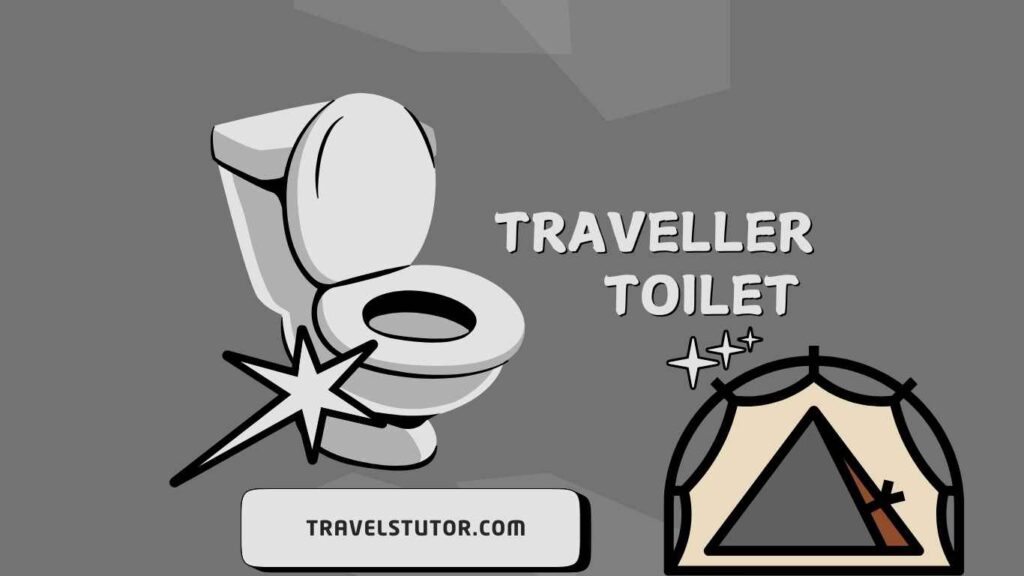Summary: A complete educational guide to Traveller toilet functions and components along with their maintenance protocols is available below. This complete discussion examines the essentials of traveller toilets which serve as mobile sanitation systems. This guide will examine the design specifications alongside operation principles of these facilities while explaining why the individual parts used in traveller toilets are vital for achieving reliability and comfort during recreational trips.

Contents
Understanding Traveller Toilets
Mobile-friendly traveller toilets serve as compact sanitation units which accommodate recreational vehicles as well as boats and support off-grid needs. The function of these toilets differs from household models because they use a portable waste holding system connected to their tank to deliver waste management services wherever recreational use occurs.
Current Traveler Toilets Exhibit The Following Main Characteristics
- Traveller toilets of today make superior specifications which distinguish them from conventional bathroom equipment.
Modern toilet bowls made of ceramic material maintain durability against both stains and physical wear.
Modern flushing techniques in these systems decrease the water needed during flushing operations.
Mosquito Management: Built-in sealing systems stop unwanted odors from occurring- Lightweight Design: Portable units with removable waste tanks
All toilets share standardized mounting options which enable easy replacement.
Varieties of Traveller Toilets
Travelers have different options to select from among various toilet models.
- Gravity-Flush Toilets: Utilizing gravitational forces for waste disposal
- Portable Chemical Toilets: Featuring detachable waste management systems
- Traveller toilets of this type have permanent fixture points with accessible waste receptacles.
Essential Traveller Toilet Parts
Maintaining optimal performance requires understanding critical traveller toilet parts:
| Component | Primary Function | Typical Application |
| Seal Kits | Preventing leakage | Waste tank connections |
| Flush Mechanisms | Ensuring smooth operation | Pedal-driven systems |
| Ceramic Replacements | Maintaining structural integrity | Long-term usage |
| Vacuum Breakers | Protecting water systems | Potable water lines |
Installation and Maintenance Strategies
Successful traveller toilet management involves:
- Precise Installation: Securing units with appropriate mounting hardware
- Regular Cleaning: Using non-abrasive cleaning solutions
- System owners should prepare their systems for winter by implementing freezing defense protocols.
Selection Considerations
The selection of traveller toilets should include the following evaluation criteria:
- Compacted travel facilities require small-sized toilet designs.
- Durability: Material quality and long-term performance
- Maintenance Requirements: Ease of part replacement
- Compatibility: Matching existing vehicle infrastructure
Practical Usage Recommendations
Expert travelers suggest:
- The practice of having spare parts ready represents a key strategy for traveller toilet maintenance.
- The chosen method for waste disposal requires the use of official dump stations.
- Both periodic examinations and assessment of seals as well as mechanical components are necessary.
Advanced Care Techniques
Experienced users recommend:
- Preventative Maintenance: Proactive part replacement
- Specialized sanitation products should be used for complete cleaning operations.
- Environmental Considerations: Utilizing biodegradable supplies
Conclusion
Traveler’s portable toilets serve as sophisticated mobile systems which provide sanitation convenience to users. Travelers who dedicate their attention to fundamental traveller toilet part upkeep and best practice implementation and understand their intricate construction system will achieve sanitary and comfortable toilet experiences in various locations.
A traveller toilet properly maintained makes mobile life easy and trouble-free regardless of exploring forested areas or beach destinations.
Traveller Toilet FAQ
Q. What is a traveller toilet?
Traveller toilet represents a compact and mobile bathroom system built specifically for RVs and boats and camping purposes.
The traveller toilet exists as an easily movable compact device that works in RVs boats and camping conditions and includes waste management features.
Q: What types of traveller toilets exist?
Different kinds of traveller toilets exist in the market today.
A: Main types include:
Gravity-flush toilets
Portable chemical toilets
Cassette toilets
Q. When performing regular maintenance of my traveller toilet I should clean it at least once between each journey.
The toilet requires cleaning after each travel session while deep maintenance checks should happen every three months.
Q. Which parts of the traveller toilet require replacement?
A: Common replacement parts:
Seals
Flush mechanisms
Waste tank components
Practical Usage
Q. What paper products should I use for toilet purposes?
Biodegradable quick-dissolving toilet paper meant for traveller toilets should be selected.
Q: How do I dispose of waste?
Every dump station requires both local environmental requirements and the use of designated facilities.
Cost and Durability
Q. What is the expense of toilets available for travellers?
Different traveller toilet models include prices ranging from $100 to $1500 based on their features and quality specifications.
Q: How long do they last?
The lifespan of such toilet systems varies from 5 to 15 years based on use frequency and product model selection.
Q. Which locations offer replacement components for traveller toilets?
Manufacturer websites
RV supply stores
Online marketplaces
Q. Is there any warranty coverage included with the purchase of traveller toilets?
Traveller toilets have a usable lifespan of 1-10 years according to their manufacturer specifications.
Pro Tip
Every user should consult their model manual before performing scheduled maintenance tasks to maximize system performance.

Safnaa has been working in the travel industry for over a decade, and her expertise and knowledge are reflected in the high-quality content and resources available on travelstutor.com. She is dedicated to providing travelers with accurate and up-to-date information on destinations, accommodations, transportation, and activities, ensuring that they have the best possible travel experience.



